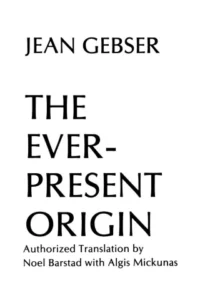As a cultural phase that comes after and redeems the cynicism and irony of postmodernism (such as in the work of Vermeulen and van der Akker, comparable to the work of cultural theorists on post-postmodernism, digimidernism, transmodernism, performativism, postconstructivism, enactivism – describing trends within culture at large, pop culture, visual arts, theatre, architecture, literature, music, film and so forth).

As a developmental stage of society and its institutions, one that emerges and stabilizes after modern society (such as Hanzi’s own work, comparable to Ken Wilber’s integral theory, Jürgen Habermas’s and Günther Dux’s developmental sociologies, and the holistic sociologies of Roy Bhaskar and Edgar Morin).

As a meta-meme, i.e. a deep-lying pattern-of-patterns within the realm of meaning-making and symbols, with its own social, economic and technological dynamics, that are likely to emerge together in a coherent, non-arbitrary manner in historical sequentialty, where the different parts resonate with one another and mutually reinforce each other, particularly around the emergence of a digitized internet society (this is explored in Hanzi’s own upcoming work, The 6 Hidden Patterns of History and it has a precedent in e.g. the work of Jean Gebser).

As a relatively late and rare stage of personal development – cognitive, emotional, existential and relational (as studied in adult development psychology, where later stages of a more self-transforming mind are studied in different ways by such theorists and researchers as Robert Kegan, Susanne Cook-Greuter, Michael L. Commons, Michael Basseches, Kurt Fischer, Theo Dawson, Terri O’Fallon, Clare Graves, Gerald Young and others, Hanzi included with his work on the “effective value meme” of a person).


As a certain paradigm, with its own philosophy with accompanying theologies (which includes a family of ideas concerning ontology, epistemology, aesthetics and ethics, such as …
- Karen Barad’s agential realism and onto-epistemology
- Quentin Meillassoux’s speculative realism
- perspective-participatory views of reality and “entanglement”
- belief in potential rather than actuality as the ground of reality
- developmental views of emergence, chaos, complexity and cybernetics
- multi-perspectivalism
- the revisiting of process philosophy in Whitehead and Peirce
- critiques of anthropocentrism and humanism
- holistic views that put spirituality and studies 1st person phenomenological or experiential perspectives at the center
- developmental semiotics and cyber-semiotics
- syntheistic theologies
- transdisciplinary studies and meta-theories which map out non-arbitrary relations between different injunctions into reality
- fractal perspectives of reality and experience in which for instance the relation between natural and social sciences are viewed as contained within one another in fractal patterns
- relationality as an ontological basis
- deconstructive critiques of the naïve experience of the self as a discrete object,
- transpersonal perspectives that try to go beyond ideas of “the individual” and “the collective”
- critiques of linear statistical inference in favor of the study of emergent patterns
- a holistic view of information theory
- an embrace of ‘both-and’ thinking and self-critical embrace of paradox and the brokenness of reality’s self-organization
These interrelated strands represent different versions of neo-Hegelianism and post-Kantianism, tending towards “non-dual” spirituality and a distancing from Cartesian dualism in its various forms). Obviously, the interconnecting links between all of these philosophical projects is far from evident; rather, I hold, there is a profound structure to the metamodern mind, the contours of which can thus far only be vaguely sketched, and much remains to be done in terms of formulating the key principles underlying the metamodern philosophy proper, as well as in the sociology of knowledge concerning from which social contexts such ideas emerge.















